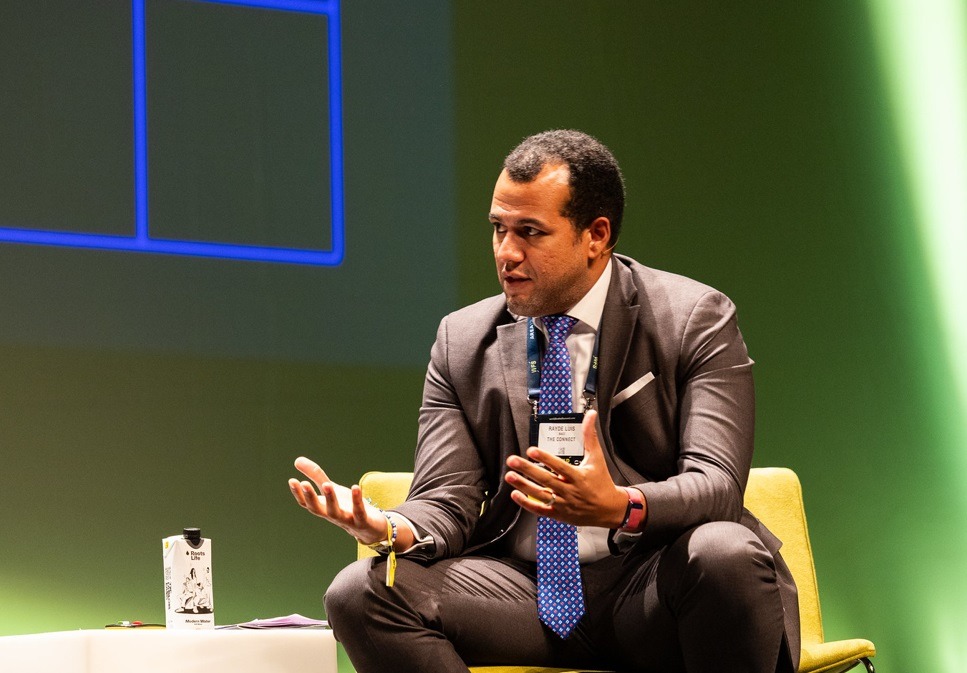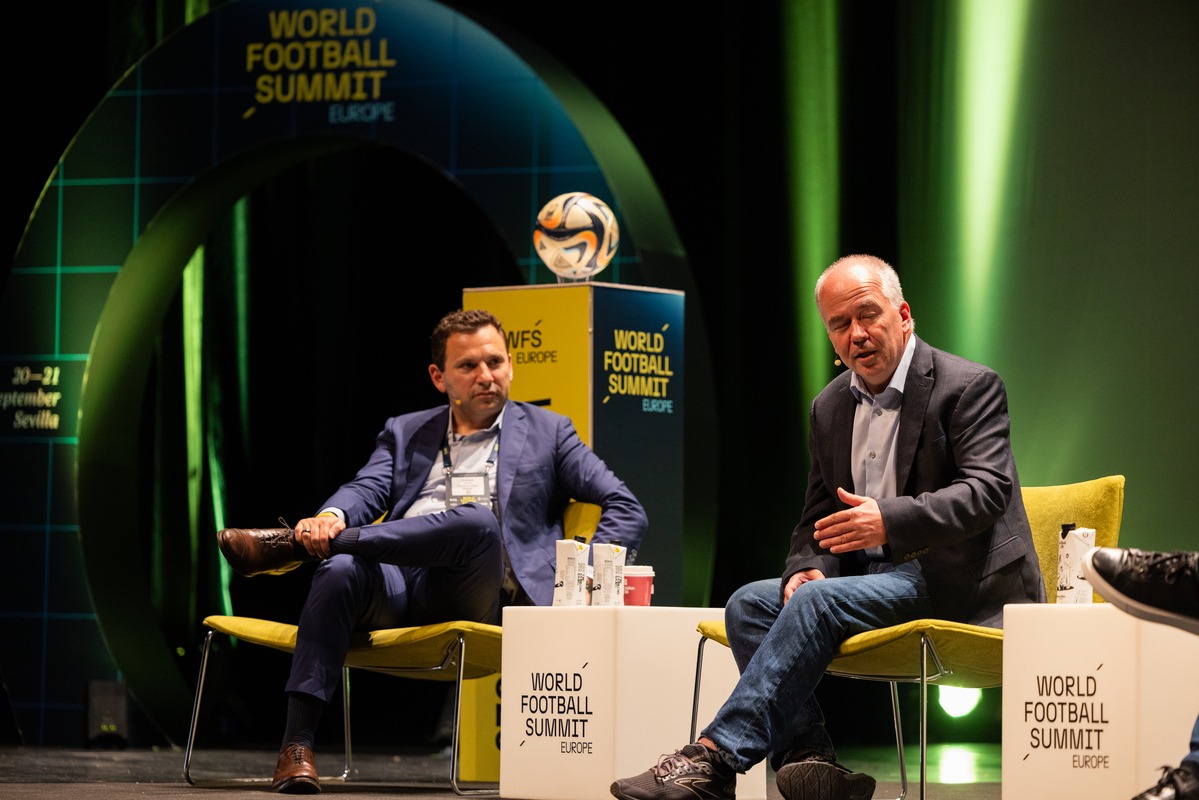Filtering through the mainstream with a flaming new content strategy, the MLS is slowly reaching for the world. Insiders Jordan Gardner, Tony Cherchi and Rayde Luis Baez help us unpack the newfound American interest in football and the MLS participation in the race to becoming the next best league
When it comes to sports, the United States of America have very clear favorites. They love basketball, they love baseball, and they love American football. They play it, they celebrate it and, of course, they sell it. It’s in their streets, music, shoes and, perhaps most importantly, on their televisions. And, as a consequence, in the rest of the world’s. From ‘The Simpsons’ to ‘A League of their Own’, from ‘Hoop Dreams’ to ‘Space Jam’, from the Supwerbowl Halftime Show to every single high school movie ever produced, musical or otherwise.
“What carries a sport like basketball globally is the lifestyle that comes along with it”, said Rayde Luis Baez, Founder & Chief Connections Builder in The Connect, during a conversation on the World Football Summit Podcast. “Being front row on a courtside during an NBA game is a status symbol, and it is not because of the game or its stars. It is because of its impact on music, film, fashion or technology”.
However, this is not necessarily true for all Americans anymore. When you segment audiences by generation, you can see there is a change in this tendency. Status has become something else, because for the youngest generation, sports consumption has become something else too.
“You cannot compete with the NFL or the NBA in the USA, but soccer is the sport of a new generation of Americans”, said Tony Cherchi, Show Host at MLS on Apple TV, in the World Football Summit Podcast. “The popularity is astonishing. In 15 or 20 years, the position is going to be much higher”. And there is already a strategy at work to guarantee it.
THE CONTENT APPROACH TO SPORTS STREAMING
As content has just become another means of entertainment, younger generations are approaching sports that were traditionally consumed in a linear fashion ―meaning that, when the audience wanted to see a match, they had to wait for a certain day, a certain hour and tune in to a certain channel― through a multi-screen environment instead of a traditional broadcasting system.
This, of course, offers a great deal of possibilities in regards to the creation of content, but at the same time, it has developed a very media-saturated environment, where, simply put, there is a lot of everything. “Is there too much content?”, asked Rayde Luis Baez. “I wouldn’t say so. What I don’t there is enough of, however, is good content”. And this is the key to the issue.

Such a wide framework of exposure offers a very valuable asset to sports in the sense that they can reach not only their fans, but casual spectators with realtive ease . “Having a platform like this gives you the chance to add a new angle to your competition”, explained Baez. “Basically, now we are in a massive demographic and generational shift. The competitions that we knew don’t resonate the same anymore, because young people don’t have the link to someone like Jordan like I did. And it’s not even the game. In fact, they probably haven’t seen a single second of any game”.
TARGETING NEW AUDIENCES WITH STORYTELLING
That is why, to him, the future of sports will be closely related to a strategy that they are already putting to work, which is creating content with a specific audience pool in mind, particularly young Americans. “You have to understand storytelling as a commercial tool, and then pinch certain audiences that interest you. This, of course, is specific to every region and you have to be able to produce it accordingly and, of course, distribute it”.
This, however, is the part where it gets tricky. “Football is the most global sport”, he says, “but distribution is traditionally scattered and fragmented. Sometimes even region-based. And that is hard to access, which is why having macro distribution platforms with worldwide reach is actually a way to curb the disaffection younger generations are feeling towards the sport”. And with its ten-year streaming deal with Apple TV, that is exactly what the MLS has recently achieved.
APPLE TV’S REVOLUTIONARY PARTNERSHIP WITH THE MLS
When the deal was announced back in 2022, it was met with skepticism: some chose to see it as an opportunity to up the ante of the game ―more money, better production, international and centralized distribution―, while others thought it was, perhaps, a risky choice bound to alienate local audiences and media.
The priorities of the MLS, however, remain clear. “Our goal is to create a good fan experience for the people that follow the MLS, as well as for those who are not very aware of it”, explained Apple TV’s MLS Show Host Tony Cherchi, who has seen the project from the inside. “We are making extremely unexpected progress on something that we created from scratch around four months before the games started. It has been somewhat underestimated: people thought we wouldn’t be able to do it and we did. Now, we have those games with at least a couple of audio options and, after we put this on a well oiled machine, the next step will be adding different content”.
But not everyone is as enthusiastic. Jordan Gardner, American sports executive and former FC Helsingor chairman, recognized in the World Football Summit Podcast that “in the USA, football isn’t the most popular sport, and the relatively casual events in MLS don’t break through mainstream media”. “The Apple deal will obviously help”, he added, “and Inter Miami signing Messi was everywhere, so it will be interesting to see if the league can capture that momentum”.
A HISTORIC IN CLUB VALUATIONS
In addition to Messi’s signing and Apple’s deal, MLS is riding particularly high thanks to record breaking club valuations, with an average team being worth $678 million, representing an 85% increase in comparison to 2019. Rayde Luis Baez, however, encouraged the audience during the WFS Podcast “not to get caught up in valuations, because a valuation is just an indicator”. However, he conceded, “as an indicator, the perception of growth is outstanding and completely aligned with US soccer”.
Gardner agreed, calling it a product of supply and demand: “You have a limited offer of clubs, and a lot of very wealthy people interested in investing in a growing sport. I’m a skeptic and I don’t think they make a lot of sense under any rational financial metric”. According to him, the increase in value perception is very much a growth mentality that springs from people’s belief that soccer in America is undervalued, and there is an opportunity for it to become the best in the world.
SUSTAINING RECORD VALUES FOR THE LEAGUE
Does Baez think these valuations are sustainable? “I guess so”, he said. “There’s more room for investment in the women’s side of the sport. On the competitive stature, they are better and far more interesting to watch. They’re the bosses, and they have sustained themselves for ages, even at the local level. But in the men’s, I have doubts. Valuations only work if you have assets or if someone is willing to pay for it”.
“The big question mark”, he added, “is what happens after the World Cup”. According to him the valuations could suffer as the interest in the league tends to decline, as it already happened in the 90s. However, he feels optimistic: “I don’t think it will happen this time, because the infrastructure is different and the demographic is more prone to consume the sport”.
The idea, nevertheless, is still to conquer not only the USA, but the whole world. “What I can tell you is that the plan is to become international. All the people around the league want so too, and they think it is achievable”. He explains that, while they understand that there are always going to be major leagues in the world, particularly in Europe, they have many ingredients to become global, in terms of players and growth of the sport in the States. “This is all just a sign that it is still exploding”, he concludes. “I don’t know how anybody can doubt how it will be successful”.

